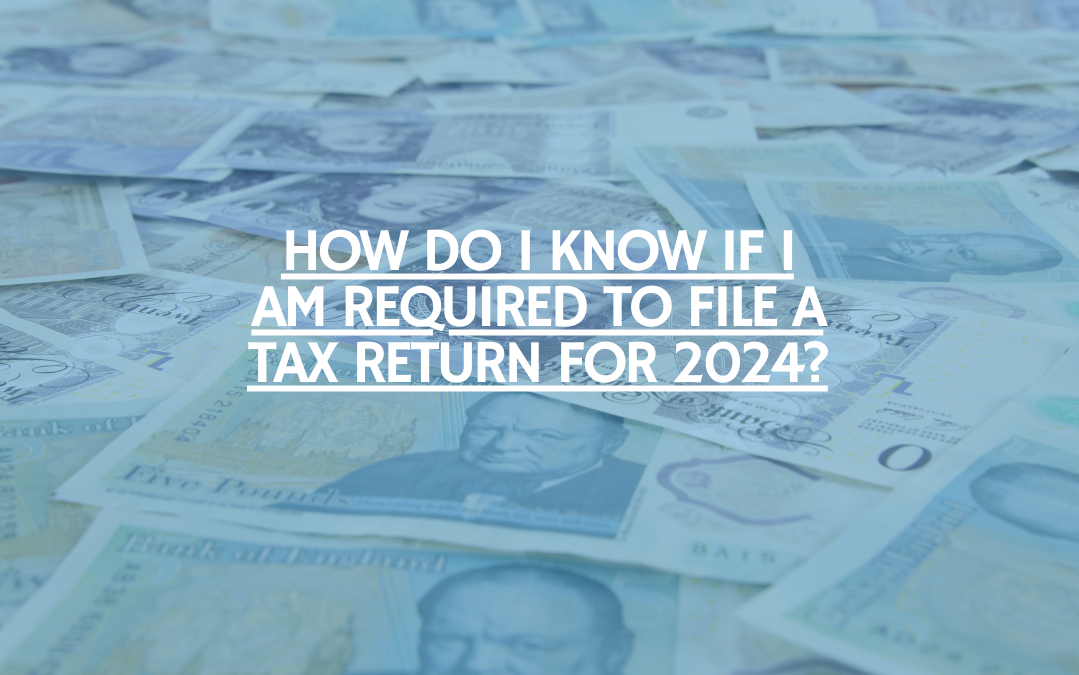How do you know if you have to file a tax return for 2024, especially if this is your first time doing it?
Here at Your Finance Team, we specialise in preparing and submitting tax returns for individuals, partnerships, limited companies and not-for-profits so we have a professional understanding of the tax return process. For first-timers though, this can be a bit daunting.
In this post, we wanted to give you a clear guide to submitting your personal tax return and letting you know your options.
We will cover;
- What is a tax return?
- Who has to submit a tax return in 2024?
- How do you complete your tax return?
- How do you submit your final tax return figures?
- What is the deadline for tax returns in 2024
- Can you submit your own tax return?
- Tax returns – there is an alternative
What is a tax return?
Let’s start with the basics, what actually is a tax return?
At its simplest, a tax return is a statement from the taxpayer that includes a summary of their income and allowable outgoings which then allows a tax computation to be made.
The really important point here is that the onus is on the taxpayer to produce a tax return and tell HMRC what they owe. For individuals these are called ‘Self-Assessment Tax returns’ which accurately describes HMRC’s approach.
Unfortunately, there is no getting away from the fact that if you make a mistake then the fault is yours and not the taxman’s and if you do make an error or miss a deadline then you could end up paying a penalty and interest on any missed tax payments.
In the vast majority of cases in 2024, tax returns will be completed online or submitted digitally using specialist software. The days of a paper tax return plopping through your door are long gone and with it a simple way of reminding people that they need to produce their information and submit it by the deadline.
Who has to submit a tax return in 2024?
Understanding who needs to produce a tax return is a tricky subject. HMRC doesn’t send an automatic reminder unless you have produced a tax return before so if it is your first time then you need to make sure you get it right.
Let’s start with who may not need to produce a tax return in 2024.
If you are employed with no outside income and you only pay basic rate tax, have no investments, share income, capital gains or rental property then you probably don’t need to supply a tax return. By the same token, if you are in receipt only of the basic state pension then a tax return probably won’t be needed.
Note though that the operative word here is ‘probably’ and that’s because everyone’s circumstances are different so a tiny little detail may make you liable to produce a return.
How do you complete your tax return?
The starting point for any tax return is to keep complete and accurate records for the year in question. This means keeping receipts and tax documents such as your P60 and making sure these are all up to date and accessible.
How do you submit your final tax return figures?
If you are producing a tax return for a person then you have three choices; You can complete a paper return, use the HMRC basic digital submission portal or get a professional to help.
If you need to submit a partnership tax return then you have the choice of using paper form SA800, using the HMRC basic tool or enlisting professional assistance.
If you use the basic submission portal then it will ask a series of questions about which pages you should complete and then include them in the process but again the caveat applies – it is your responsibility to complete the right pages and if the portal makes a mistake then it is still your fault!
What is the deadline for tax returns in 2024
In the UK the tax year for individuals and partnerships extends over the calendar year and runs from the 6th of April to the 5th of April of the following year.
So for example, if you received capital gains income in May 2023 that would fall into the 2023/24 tax year and be included in your subsequent tax return.
The tax return deadline for each year is the 31st of January in the next year. So again, using our example above, the income was received in May 2023, it would be included in the return produced after 5th April 2024 which must be submitted by 31st January 2025.
There is another health warning here though. If you choose to send in a paper return then you will have less time to do so and the deadline is actually 31st October.
| Income received | Tax year | Digital tax return deadline | Paper tax return deadline |
| May 2022 | 2022/23 | 31st January 2024 | 31st October 2023 |
| January 2023 | 2022/23 | 31st January 2024 | 31st October 2023 |
| May 2023 | 2023/24 | 31st January 2025 | 31st October 2024 |
| May 2024 | 2024/25 | 31st January 2026 | 31st October 2025 |
This means the tax return deadline for 2024 depends upon when you received the income and whether you are submitting digitally or on paper.
Can you submit your own tax return?
As we have seen it is perfectly possible to submit your own tax return for an individual, partnership or limited company.
You would do this by either using the HMRC basic portal or by requesting the correct pages from HMRC and completing a paper return.
But as we have seen from the previous sections, this is no mean feat.
To start with you need to make sure you are completing the right pages, have produced your tax computation in the correct manner, fill in all the boxes correctly and do so at the right time.
Then we come to the thorny issue of tax reliefs and allowances. How do you know you have claimed everything you are entitled to?
Once you have done all of that you’ll need to navigate the HMRC portal and make sure you have correctly submitted your return and in the case of a limited company, you may well need to buy specialist software.
Tax returns – there is an alternative
We’ve seen in this article that the responsibility for producing an accurate tax return belongs to the taxpayer and that it is, to say the least, a complicated process. If you get it wrong then there is the likelihood that you will be charged penalties and interest.
The good news though is that there is a much better alternative.
By engaging us to manage your tax return you will know you are in the capable hands of true professionals.
To start with, you’ll never miss a deadline and we’ll let you know in good time when we need information.
If you are an individual we can make sure you are completing the right pages and that your self-assessment tax return is accurate and complete.
For partnerships, we can complete not only your partnership tax return but also individual computations for your partners.
You’ll have the peace of mind that you can forget all about submitting your tax return as we will lift the burden from your shoulders and all the way through we’ll keep up communication so you know that the matter is being dealt with.
Our aim is to make sure the tax year is a hassle-free experience for all of our clients.

